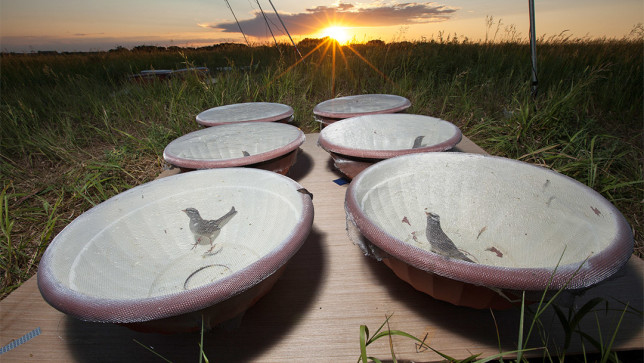Research from the the University of Saskatchewan (U of S) in Canada has linked the use of neonicotinoid insecticides to serious health issues in songbirds, the University revealed last week.

“Studies on the risks of neonicotinoids have often focused on bees that have been experiencing population declines. However, it is not just bees that are being affected by these insecticides,” said Christy Morrissey, U of S biology professor.
Research led by Margaret Eng, a post-doctoral fellow in Morrissey’s lab, is the first study to show that imidacloprid (neonicotinoid) and chlorpyrifos (organophosphate)—two of the most widely used insecticides worldwide—are directly toxic to seed-eating songbirds. The paper, published in Scientific Reports, shows these chemicals can directly affect songbird migration.
“These chemicals are having a strong impact on songbirds. We are seeing significant weight loss and the birds’ migratory orientation being significantly altered,” said Eng, who also worked with colleagues from York University. “Effects were seen from eating the equivalent of just three to four imidacloprid treated canola seeds or eight chlorpyrifos granules a day for three days.”
NEW: Test Your Hair for Pesticides – Groundbreaking Technology!
Neonicotinoids have become the most popular class of insecticides among farmers because they are very successful at killing pests and are easy to apply.
“In the past farmers might have placed an insecticide into a crop duster and would spray their fields with the insecticide. However, now farmers have access to seeds that in many cases are already coated with neonicotinoids,” said Morrissey. “Birds that stop on migration are potentially eating these seeds, but can also mistakenly ingest the chlorpyrifos pellets for grit, something they normally eat to aid in the digestion of seeds.”
During a spring migration, Morrissey and Eng captured sparrows, which were then fed daily for three days with either a low or high dose of imidacloprid or chlorpyrifos. Lab experiments showed that the neonicotinoids changed not only the birds’ migratory orientation, but the birds also lost up to 25 per cent of their fat stores and body mass, both of which are detrimental to how a bird successfully migrates.
“What surprised us was how sensitive and rapid the effects were, particularly to imidacloprid,” said Morrissey. “The birds showed a significant loss of body mass and signs of acute poisoning (lethargy and loss of appetite). The migration trials also showed that birds completely failed to orient or changed their northward orientation.”
“Many small migratory songbirds use agricultural land as a stopover to refuel on long flights. These neurotoxic insecticides are widely used in North America but their effects on migratory ability in birds have not been tested before ” said York U biology researcher Bridget Stutchbury. “Although neonicotinoids were thought to have a lower toxicity to vertebrates, it actually proved to be more harmful to these songbirds than the older organophosphate chemicals.”
Research took place at the U of S Facility for Applied Avian Research (FAAR), a facility devoted to ecotoxicology and avian health. The $2.3 million facility opened in May 2016 and FAAR is the only resource of its type in Western Canada.
“We were encouraged that most birds survived, and could recover following the cessation of dosing,” said Eng. “But the effects we saw were severe enough that the birds would likely experience migratory delays or changes in their flight routes that could reduce their chance of survival, or cause a missed breeding opportunity.”
Morrissey said that this research “could have major implications for regulation decisions of these pesticides. Imidacloprid and chlorpyrifos are highly controversial for their safety to the environment or to humans and a decision on a proposed imidacloprid ban in Canada is being considered, with the federal government expected to make a decision on imidacloprid and its use in Canada sometime in December.”


















